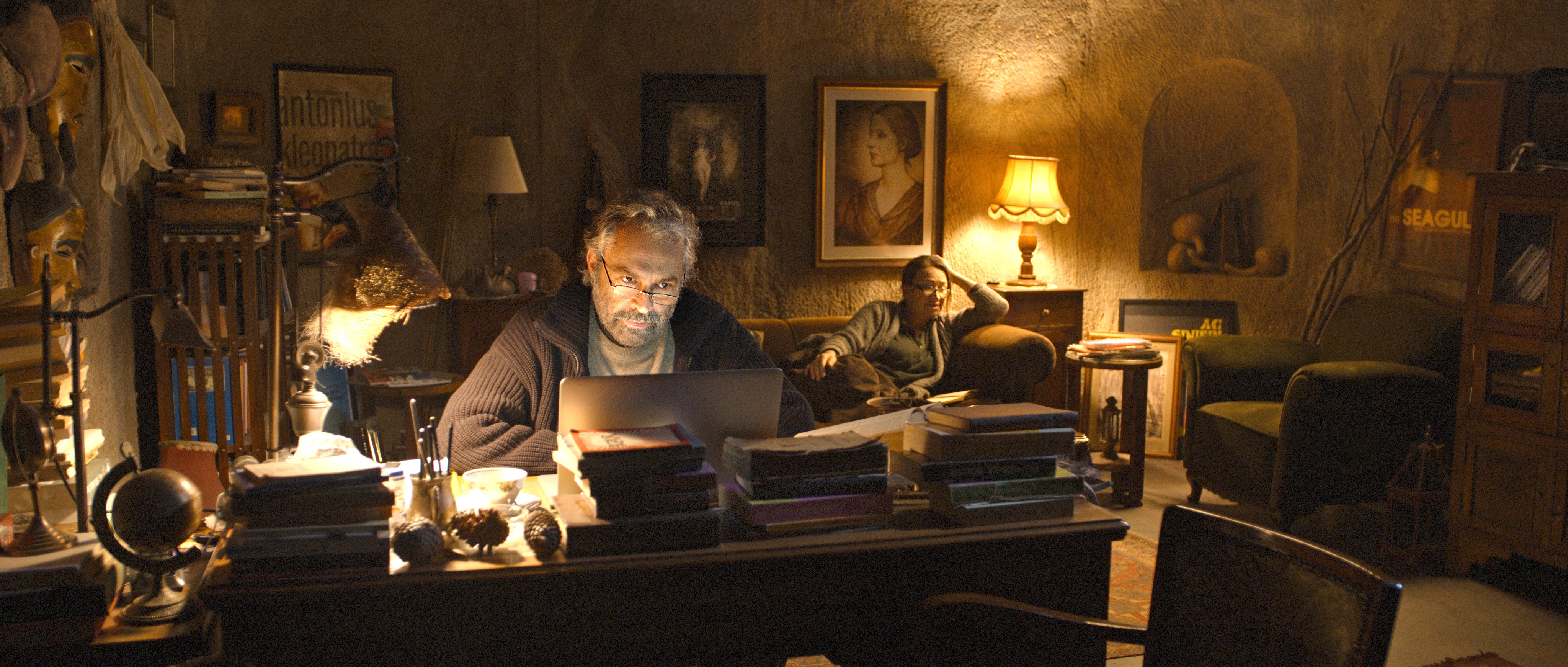By Mark Saldana
Rating: 3.5 (Out of 4 Stars)
Winner of this year’s Palme d’Or at the Cannes Film Festival and Turkey’s official entry for Best Foreign Language Film, Winter Sleep truly is a remarkable film that critiques relations between the wealthy and poor classes in Turkey, but also is an engrossing portrait of disconnected relationships between a husband and wife and a sister and brother. Written and directed by Nuri Bilge Ceylan who co-wrote the screenplay with Ebru Ceylan, based on stories by Anton Chekhov, Winter Sleep mostly consists of dialogue heavy scenes, but the majority of these sequences had me engaged and engrossed. The film does run on a tad long and a few of dialogues do get a bit long winded. However, the over all experience of watching this film does feel like being an invisible observer to the lives of these people and their problems. That’s where Ceylan and his actors succeed. They are recreating real life for cinema.
The film stars Haluk Bilginer as Aydin, a retired actor-turned hotel and property owner in Turkey. While living at his hotel, Aydin often busies himself by writing a column for the local newspaper. Pompous and detached from most of the people in town including his family and employees, Aydin won’t win any popularity contests and is actually feared by the poorer tenants of his properties. As winter arrives and the hotel begins to shut down for the season, Aydin must contend with violent tenant issues and conflicts between him and his emotionally distant wife Nihal (Melisa Sozen) and between him and his sister Necia (Demet Akbag) who lives with them.
I was rather impressed with dialogue in the screenplay, as well as the superb performances of the actors who had to deliver the tremendous amounts of dialogue and make these sequences feel natural and organic. Ceylan and his writers have created a bleak view of Turkey and the troubled relationships of their people. The experience is tremendously heartrending through most of the movie. It is a bold and very candid portrait of Turkish people. Ceylan has chosen made a fascinating choice in selecting Aydin as his protagonist. Seemingly benign at first, Aydin proves to be a troubling character with his indifference and indignation toward all kinds of people. What’s interesting is at the beginning, I could see his point of view in certain situations, but this quickly changed as I could see the damage he and others like him cause.
As I previously stated, the film does run long (196 minutes), but mostly flows well. There are a couple of lengthy dialogues that probably did not need to run as long as they do and this frustrated me a little, but after a while the conversations, discussions and arguments grew compelling and fascinating just when I was about ready to tune out. In keeping with his realistic and natural approach, I think Ceylan allowed these moments to occur. He allows these sequences to run on at times to make them feel like they occurred in a real setting with real people.
The exceptional performances by the cast contribute greatly to accomplishing this objective. Bilginer, Sozen, and Akbag perform beautifully as the lead characters. Two of the supporting actors Nejat Isler and Serhat Mustafa Killic are absolutely fantastic in their roles as troubled brothers who rent one of Aydin’s properties. Isler brings a powerful and fiery turn as the angry alcoholic Ismail and Killic brings much a tender timidness and much heart to his role as Hamdi.
As cold and bleak as this film often comes across, there obviously is much love and passion behind this work. The relationship problems of these Turkish characters not only resonate with people of that nation, but can resonate with people everywhere. I think because of the run time and lengthy conversations in the film, Winter Sleep won’t appeal to everyone, but for those looking for something very reminiscent of and obviously inspired by the works of Ingmar Bergman and Jean Luc Godard, this is a film not to miss. Winter Sleep opens in New York on December 19 and will receive a wider release in January, 2015.
